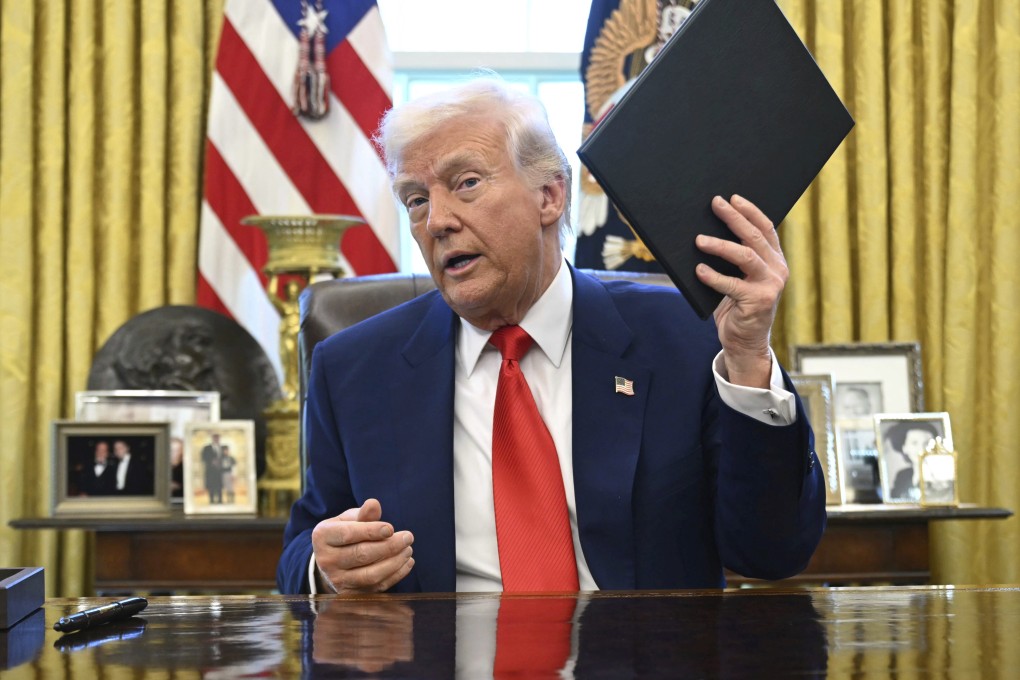In one stroke US President Donald Trump has narrowed a global trade war he started into a showdown between the United States and China. His unexpected 90-day pause in Washington’s reciprocal tariffs against most other countries is a capitulation to markets that had responded by wiping trillions off the value of shares. Just before Trump ordered the pause, during which other countries can negotiate with the US, the world’s two biggest powers had again swapped trade blows.
Beijing raised the tariff on all imports from the US by 50 per cent, bringing cumulative duty to 84 per cent, and Washington then raised the tariff on imports from China under Trump’s second term to 125 per cent. The escalating tit-for-tat engagement now comes down to a question of who blinks first. It no longer matters how much more duty is placed on Chinese exports because it is now just a meaningless numbers game – a psychological war in which Trump raises the ante whenever China responds.

A strategy to isolate China with extreme pressure tactics becomes increasingly clear, raising the questions: what is the endgame and what is Trump’s real purpose? China is unlikely to enter talks with what it considers an irrational negotiating partner. In this regard it is to be hoped the two sides can put a stop to the move-and-countermove engagement, which has already ended normal trade relations between the world’s two biggest economies. Is it realistic for the US to try to completely shut China out of its market? Even if that were the purpose, it is not clear how the US could do so, at least in the next two or three years.
While there are many items the US cannot source elsewhere, the same is not true of China’s imports of commodities and resources, for example, and the US does not want to supply hi-tech items. American trade tactics against China are partly based on the assumption that its government is fragile and will have no choice but to back down in the face of extreme pressure. This is a gross underestimation of China’s political resilience.
Even people who should know better seem to delude themselves into thinking that a rise in unemployment and a fall in gross domestic product is enough to cause the ruling Communist Party government to collapse..
Politics

Struggle for Trump to make China blink first in tariff numbers game

In trade war showdown between two biggest powers, Beijing is unlikely to enter talks with someone it considers an irrational negotiating partner.















